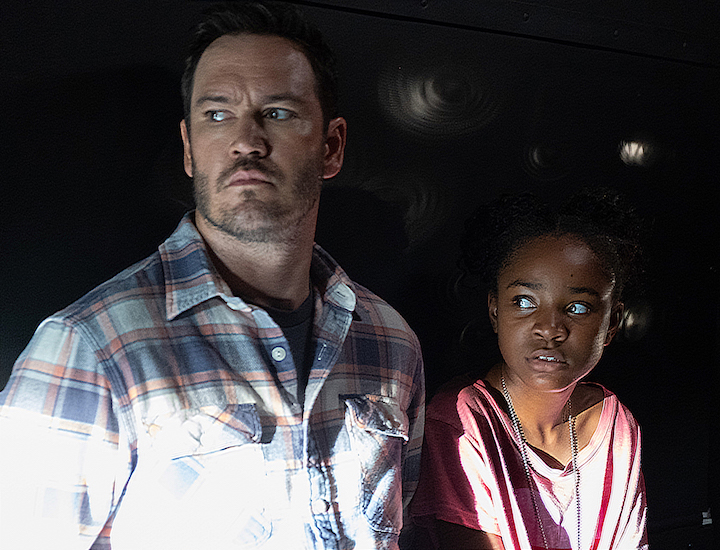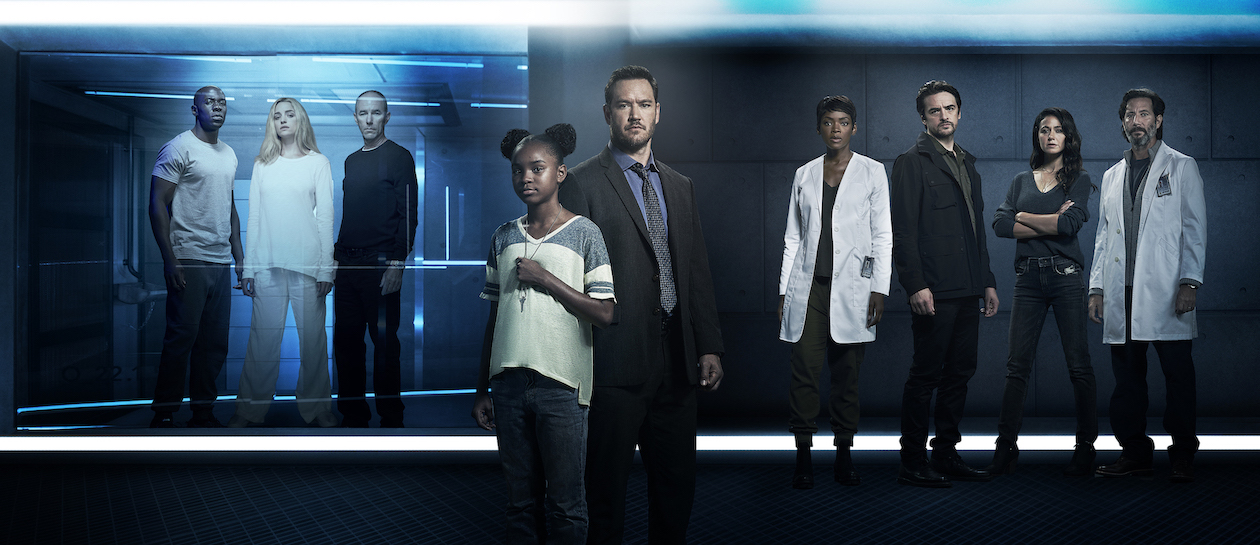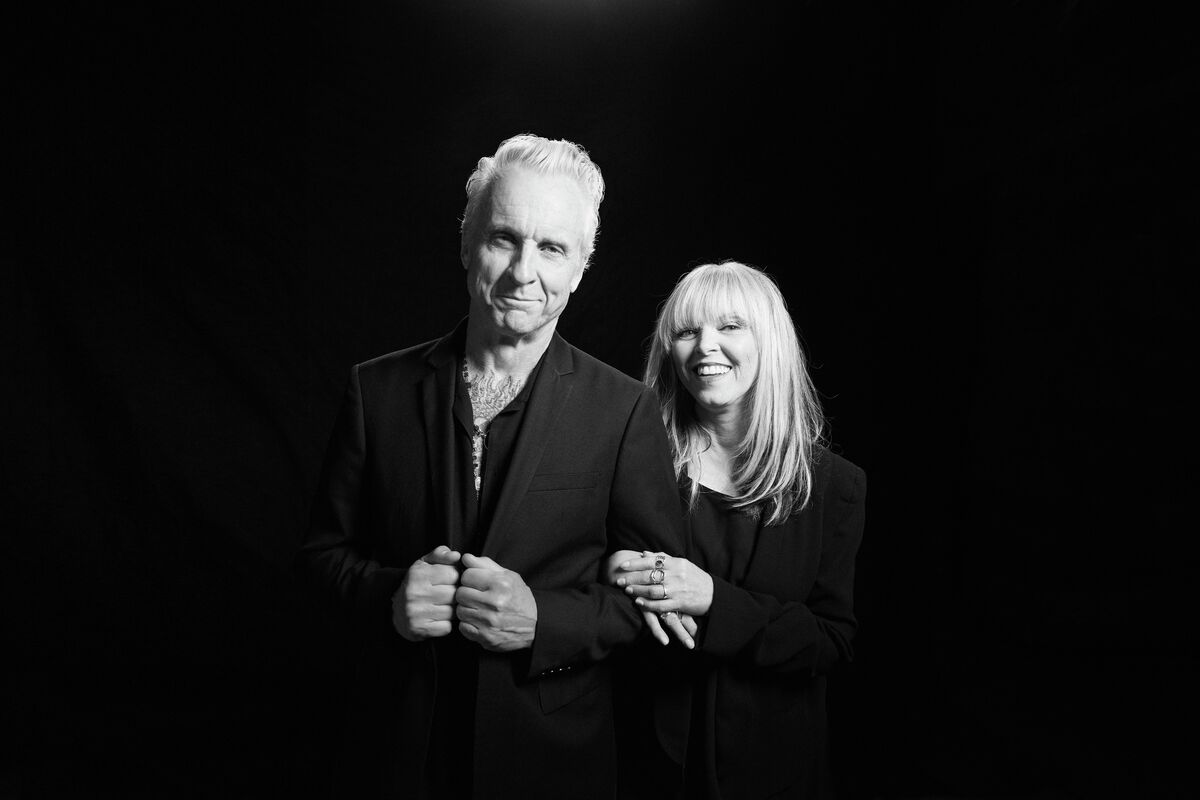Featured News - Current News - Archived News - News Categories
Behind the Screens with @JoshuaMaloni
From the characters to the plot to the fight scenes and the music playing in the background, everything about FOX’s new series “The Passage” is stylish and cool.
That’s not a big surprise.
The show is based on author Justin Cronin’s top-selling trilogy of the same name. Those familiar with the books or those who’ve seen promos undoubtedly expected something slick and action-packed. Plus, “Saved By the Bell’s” Mark-Paul Gosselaar taking an orphaned teen girl on the run from a questionable government organization and its hidden “vampires” is bound to be an easy sell.
What is unexpectedly clever, and adds real substance to the plot, is how much “The Passage” relies on science. The idea that blood from an ancient cave-dweller could be the source of a cure-all, or the key to unlocking unknown brain functions, poses questions about doctors, medicine and one’s hidden potential.
It also makes “The Passage” that much creepier and more intense.
As the story goes, Dr. Jonas Lear (Henry Ian Cusick) convinces his old friend, Dr. Tim Fanning (Jamie McShane), to scour a Bolivian highlands jungle in search of a mythological 250-year-old man. Fanning, a neurologist, is on tour with a book wherein he postulates the brain creates a false sense of self – hallucinating a conscious reality. He is successful and, at first, reluctant to go with Jonas. He finally agrees when he learns Jonas’s wife, Elizabeth (Jennifer Ferin), has Alzheimer’s disease.
At the end of their trek, in 2015, Fanning finds the immune man in a cage. He approaches him to offer aid, but the man reacts ferally and bites Fanning’s neck. At a nearby hospital, a dumbfounded Jonas believes his friend is dead – but, surprise! – out pops Fanning. He’s alive, but different, somehow … and gradually begins to turn … into something else: Patient Zero.
Three years later, with a global avian flu epidemic afoot, Jonas and the Colorado-based Project Noah turn to a silent, varicose Fanning – his blood, that is – to see if it holds a cure. They’ve experimented on death row inmates, but the results have only yielded more vampires – "virals" is the scientific term. These occupants are locked inside glass cages where they drink blood … and seem to communicate with each other – and Fanning, their leader.
Thinking a younger subject would have less chance of becoming a viral, or at least show fewer side effects, Project Noah enlists agent Brad Wolgast (Gosselaar) to bring in Amy Bellafonte (Saniyya Sidney). The preteen’s mother and only relative recently died, meaning Amy has no paper trail and is an ideal target. On the way, Wolgast bonds with his intelligent and capable charge, and realizes what he’s doing is wrong. He attempts to relocate Amy, but the two are immediately hunted by the Department of Defense and Wolgast’s former trainee, Clark Richards (Vincent Piazza). Without resources, Amy and “The Agent,” as she calls him, are caught, taken to Project Noah, and soon confronted by Fanning.
As Project Noah works to find a cure, a second world exists outside of reality – within these ongoing “mindscapes.” There, the virals come to life inside the dreams of those working at the Project Noah facility.
It's kind of like the "Nightmare on Elm Street" of Facetiming.
In this world, Fanning takes on a cult leader-like role, recruiting the virals to do his bidding with promises of world domination and freedom. He pushes them to manipulate and torment their captors.
As Fanning builds his army of virals, he works toward escaping and unleashing his might on the world.
McShane is masterful as one-half game show host, one-half deadly bloodsucker. He's both sinister and charming. Though he plays a villain, he injects such intrigue and panache into the character that one almost wants to skip past the heroic protagonists and see more of what Fanning is doing.
The actor, who’s appeared in more than 200 episodes of TV, recently chatted with BTS about his new roles. An edited Q&A follows.

“The Passage”: From left, “The Agent” (Mark-Paul Gosselaar) and Amy (Saniyya Sidney). (©2019 FOX Broadcasting. Cr: Erika Doss/FOX.
“The Passage”: Dr. Sykes (Caroline Chikezie) and the Project Noah team look for a cure to the avian flu. (©2019 FOX Broadcasting. CR: Eliza Morse/FOX)
Q: Monday has become one of my favorite days. I am eagerly anticipating “The Passage” each week. I have some ideas in my mind of what I'm enjoying about it, and what makes it different. But you are far more of a TV script expert that I am. What, for you, was the appeal, and what do you think makes this show different?
Jamie McShane: The appeal was I was asked to audition. And when I got the side, the couple of pages that you get for the audition – sometimes they give you the whole script to look at, but usually it’s just a couple pages – but when they sent me those pages, I really connected right away with what I envisioned I’m doing with this character. I had a lot of fun with it. And, fortunately, it seemed to connect OK for them, so they hired me.
So, that was the appeal. What makes it different? I think it's a totally different approach on an old concept, as far as vampires and taking it from a scientific view instead of a folkloric, you know, Transylvanian view on how this centuries-old character, type of characters, these vampires, could really come about by science instead of some freakish thing – although it is freakish.
I think the show has a great hero/father and daughter relationship that's the driving force of it. And people trying to do good, and the rest of us, it's a very ensemble team. And I think it's really about people really trying to do something good in the world. And what happens when it doesn't go the way they envisioned it for everyone? I think that's a pretty universal theme in life.
Q: When you're auditioning and you were first getting to find out more about this role and about this show, do you know instantly that you would, basically, be playing three characters. There's the Tim Fanning pre-exposure; there is the Tim Fanning post-exposure; and there's also Patient Zero, when you're in the makeup. Did you know you'd be playing so many different shades of this character? And what do you like about that challenge?
Jamie McShane: No, I did not know. Actually, I was pretty clueless. Because, when I read the audition, I knew there was something going on that Fanning – he got to be an alternate sort of being and he was in people's minds. But it wasn't clear, because I didn't have the whole script yet. I wasn't clear on exactly who he was, but I thought he was kind of pretty fun and menacing, and had fun with it.
So that's why I went into it. And it wasn't until later that my girlfriend was reading the script that I did get (that I found out). The script is very different than what we wound up going with when we shot. But I didn't realize I was Patient Zero. And as she was reading it, she looks at me and she goes, “Babe, you are Patient Zero.” And I'm like, “Oh, well that's different.”
I think I was lucky because, I think had I known I was this dark creature from the get-go, I might have done the audition differently. But I just didn't see that at the time. And that worked out pretty well.
Your next question: I love that I get to play three different roles. And it really is, because it's Dr. Fanning before, who is, you know, kind of cocky and a little bit arrogant, and fun and smart. And then there's the creature who, thus far, has not gotten to speak at all. You know, I'm basically two-and-a-half hours in makeup. And I am what the makeup artists create; and then I get to work from that. And then I’m the guy in the mindscapes, which is probably the most fun because, at that point, Fanning knows what he is, but is able to be something more, and has a lot of fun with it in these mindscapes.
Q: It's interesting what you said about realizing you are Patient Zero, and sort of the darkness of that particular character. There's another new show on another network I was excited about watching. But one of the characters is essentially a bad guy, and he's just – it's just so unenjoyable. He just doesn't bring any pizzazz, and it's a role that I just don't like. I reference that because you play a villain that I find is not just tolerable, but very interesting and intriguing. I want to know more about your character. I'm wondering if there's a particular trick to being a villain and making the villain somebody that people want to know more about?
Jamie McShane: Oh, that's a great question. And thank you; that’s a nice compliment you put in there for me. Thank you very much. I appreciate that.
I played a lot of bad guys over the years, and this is probably the most villainous as such a bad guy. I’ve played some real dirtbags before and some evil guys, but this is a little more – has more villainy to it. But I think what's worked for me is, maybe other than two characters I played in my whole career, I've never seen them as bad guys. I don't see Fanning as a bad guy.
He's not – you know, things happen to him; and he reacts; and it goes from that; and that makes him who he is. He was deemed as a bad guy, but I just don't see it that way. Definitely not from the get-go, and then it becomes more circumstantial things that have happened to him, and choices he makes. But not an outright “I’m the bad guy,” twisting the mustache sort of thing.
Q: I am sort of somewhat skeptical, too, that he is a bad, bad, bad guy. It's intriguing the little bits of his past that we've seen so far. How much more of his backstory are we going to see in the next few episodes?
Jamie McShane: You'll get to see quite a bit. … You get to see little peeks about my relationship with Jonas. You know, we were very, very close friends. He and his wife, Elizabeth, and I were all very close, kind of a close-knit group. In the book series, it dates all the way back to freshman year at college. You'll get to see some of that – some of those relationships. And then, post this season, I don't know exactly what they'll do. But, yes, you do get to see more of it. It’s fun.
Q: The biggest glimpse into his backstory that we've seen thus far is when he's lecturing and he’s talking about the brain and perception, and how we sort of see ourselves and our emotions and that. I feel like that maybe wasn't coincidental. I don't know how much you can say about this, but it seems, to me, like that might be part of the way that he's able to get into these dreams and sort of manipulate other people. What is the balance between the research that he was doing and his actually being a vampire, with regard to his new abilities?
Jamie McShane: Well, the balance between the research he was doing and then becoming a vampire, really, they're not – that’s coincidental, that he went searching for this 250-year-old man and got infected by him. Just because, you know, he thought he was kind of bulletproof at the time, and was walking up to this cage more concerned about the kid that was there (with the vampire) and helping someone out than really realizing what was going on.
As far as Fanning being able to do the mindscapes based on his neurology background prior, I think that is great writing, that the writers have developed, because you do get to see that little bit in that lecture where he’s talking all about “Your mind is not really what it is,” and all that. And then, when he becomes this creature – now he's been the viral for, I guess, about three years when the story opens up. And he's had a lot of time to sit and think and ponder and start using this new these new parts of his brain that he is finding he has access to. And then he's able to go back to the knowledge that he already has from all his studies, and start bringing that all into play.
And I think it's pretty fascinating. I think the virals Fanning included, they're continually finding out what they can do. You know, it's a continual growth. It's kind of like, pick a sport or a musical instrument, and you're like, “Oh, wow, I can do this.” And then a week later, you’re like, “Oh, my gosh, I can do this, too. Holy mackerel!” I think it's kind of like that. It's continual growth.
Q: The mindscapes, I think, are one my favorite parts of the show. My question is if the research that he was doing prior to becoming a vampire, if these new abilities have sort of made his hypothetical pondering a reality – and if it’s because of all of these things together that he's able to get into these dreams and manipulate people. It seems like it is a balance: That he sort of had the idea he could do it ahead of time and, since he's become a vampire, now he has the means and the ways to do it.
Jamie McShane: Yeah, it’s kind of a chicken and the egg, as far as which actually came first. But he has all this background research, and all this knowledge, and all this belief in this, and then his body gets altered by the virus. So, he's tapping into new ways to access his mind, which the normal human doesn't have, you know?
Q: So, what do you do in those two-and-a-half, three hours when you're getting the makeup on for each session?
Jamie McShane: (Laughs) It's probably the most mellow I am during the day. If you look at it as, “Oh, man, it’s two-and-a-half hours sitting there,” that's one way to look at it. But the makeup artist, Addison, is fantastic. So for me, I look at it as, like, each day, I get to be a blank canvas for this artist to do what he does – and there’s other people that help out, too, but it's mainly him – and let him do his work. And then when he's done, I look at my image in the mirror, and I'm like, “Oh, this is this character now.” And you put on the eyes and the teeth and you just become what they've helped to create.
And it's kind of Zen for me. We just, Addison and I talk a lot, and whoever else is in the makeup trailer. He's got a kid, and I've got kids, and we talk about stuff. We talk a lot about music. He's a lot younger than I, so he's opening my horizons on music. And it's fun. It's really a lot of fun.
“The Passage” airs at 9 p.m. Mondays on FOX. Learn more about the show and find past episodes at https://www.fox.com/the-passage/.

“The Passage”: From left, McKinley Belcher III, Brianne Howey, Jamie McShane, Saniyya Sidney, Mark-Paul Gosselaar, Caroline Chikezie, Vincent Piazza, Emmanuelle Chriqui and Henry Ian Cusick. (©2019 FOX Broadcasting. CR: Michael Lavine/FOX)





























